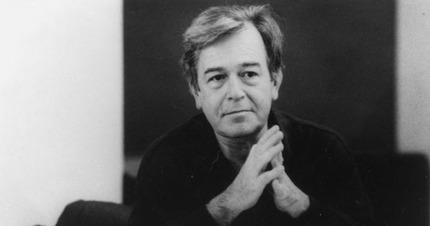En svensk översättning av denna artikel finns på Konst & Politik:


Nanni Balestrini, the radical Italian experimental visual artist, poet, and novelist known for recombinatory, revolutionary works that borrow from mass media, has died at age eighty-three. A key figure of the Italian literary Neoavanguardia (New Vanguard, or Gruppo 63) and part of the leftist Autonomia Operaia movement in the late 1960s and ’70s, Balestrini imparted the explosive politics of that era through collage and cutup works that focused on and were made with collective language. His influential texts include the poetry book Blackout (1979), which was recently translated into English by Commune Editions, and his first novel Vogliamo tutto (We Want Everything, 1971), which was reissued by Verso in 2016. In addition to novels, poems, and collages, he engaged in audiovisual work, as in Tristanoil (2012), a 2,400-hour video adaptation of his influential algorithmic novel Tristano (1966) that was first displayed in Documenta 13.
Born in Milan in 1935, Balestrini immersed himself in the city’s proletariat circles, becoming an editor and writer at numerous working-class journals. In 1968, he cofounded Potere Operaio, a group committed to factory workers. Through his participation in avant-garde movements, like the Autonomia, that centered art in their activist interventions, Balestrini achieved national importance by dissolving public and private space in literature and visual art—categories that often bled together in Balestrini’s extensive oeuvre. In 1979, at the violent apogee of the internecine revolutions surging throughout Italy, Balestrini was arrested for his alleged association with a leftist terrorist organization; unable to prove his membership, the authorities released the artist, who fled to France, purportedly by skiing down Mont Blanc. In his later years, he split his time between Rome and Paris. Balestrini’s art has been widely exhibited, including in the Forty-Fifth Venice Biennale; he also gave a reading at the fourteenth edition of the Istanbul Biennial in 2015. A group exhibition at Laura Bulian Gallery in Milan titled “The Severed Language” includes Balestrini’s work and is currently highlighted in an Artforum Critic’s Pick by Francesca Pola.
Asked by Rachel Kushner, in an interview for The Nation in 2016, how he feels about the unrest that he documented in his work decades ago, Balestrini said: “Everything is different; everything has changed. That period bequeaths us only an imperative: that we need to change the world, and that this is possible, necessary, and urgent—even if we don’t immediately manage to realize it as we’d like.”
Art Forum
Länk: https://www.artforum.com/news/nanni-balestrini-1935-2019-79864
En svensk översättning av denna artikel finns på Konst & Politik:
Staffan / Konst & Politik